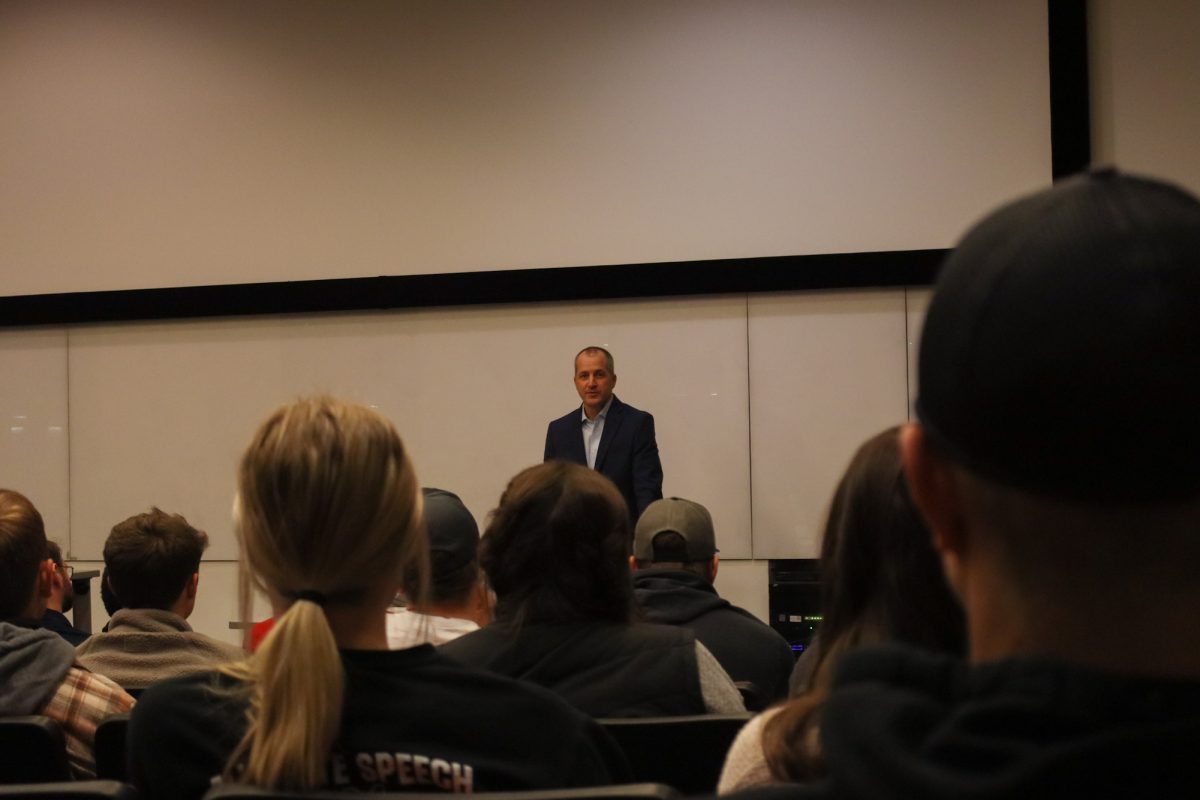World’s space programs out of order
December 2, 1996
“Tell me this isn’t a government operation.”
Something close to that was uttered by Gene Kranz, a former NASA chief flight controller during the Apollo 13 flight.
He said this upon learning that the carbon dioxide scrubbers in the command module were not the same type as the scrubbers in the lunar module, and that they could not be swapped between the two spacecraft in an emergency.
That phrase is just as appropriate now as it was in 1970. The space program has become a joke. It is no longer a symbol of national pride and technical prowess; it is a symbol of government ineptitude.
Worse yet, every major national or international space program has suffered serious setbacks in the past few months, so this foolishness isn’t limited to the U.S. No one has any simple competency in spaceflight anymore.
Check out these shameful nadirs in space exploration from the past year:
Sunday, the latest shuttle flight turned into little more than a sightseeing trip for the crew of astronauts after the outer airlock door to the cargo bay stuck and refused to budge.
A planned spacewalk to test building techniques for the future international space station was canceled, leaving the astronauts with little to do but watch the pretty scenery below. NASA controllers would not allow the astronauts to attempt to force the door, fearing that they would not be able to close the door after breaking it open.
If that happened, the shuttle would have to land immediately with two astronauts in for a very bumpy ride in an open airlock.
Scrubbing the spacewalk wasn’t a bad call, even if it was a bit timid. But, what caused this to happen — a stuck door mechanism — is just ridiculous. NASA can’t design a door which can reliably open and reseal? Please say that this is a joke.
And what does this say about NASA’s maintenance procedures? Can’t NASA keep the door in proper working order?
And there is a second hatch on the shuttle, on the side of the crew cabin. Couldn’t the astronauts get out of the shuttle that way, and spacewalk to the cargo bay?
Not only could it have solved the airlock problem, it would have been great drama. There is little excitement in the spaceflight business anymore, and that’s part of the reason the public has lost interest in NASA’s endeavors.
The Russians have certainly done their worst as well. Two weeks ago, a Mars probe failed to break out of orbit. In fact, the probe’s orbit was so unstable that it immediately plummeted back to Earth, threatening to release a noxious cloud of plutonium into the upper atmosphere or deposit a lump of the the fun, fissionable metal on whomever it whacked after re-entry.
Luckily, it splashed into the Pacific without incident. But the failure of this ambitious mission may put the Russians out of business in long-range space exploration; it wasn’t exactly a confidence-builder for the cash-strapped Russian government to fund any more deep-space probes.
And then we have the European Space Agency follies of last summer. The ESA has a reputation for reliability with its Ariane rockets, a staple in the satellite launch business. But the Ariane 5, a new heavy-lifter, didn’t live up to its family reputation.
The first Ariane 5 turned into the world’s biggest Roman candle just a minute after liftoff, exploding and showering the launch facility in Guyana with flaming debris.
The Ariane 5 would have carried the Hermes minishuttle into orbit, a prime mover of people and equipment to the previously mentioned international space station.
But that rocket program is now in jeopardy as well. Who wants to fund a rocket that disintegrates after a minute in the air, especially when proven designs can pay the bills from satellite launches?
There is much to be gained from space exploration, and there is much to be learned. We now have evidence that life may have existed on Mars. Further investigation could tell us much about how life developed on this planet. We could eventually move industry off our own world, opening up new sources of raw materials and possibly alleviating industrial pollution.
And the investment made in researching new spaceflight systems will result in technological breakthroughs which will eventually filter down to society.
There is much to be gained in space. Too bad our governments can’t get their space programs in order.
Kevin S. Kirby is a senior in journalism and mass communication from Louisville. He has a B.A. in political science from the University of Wyoming.






